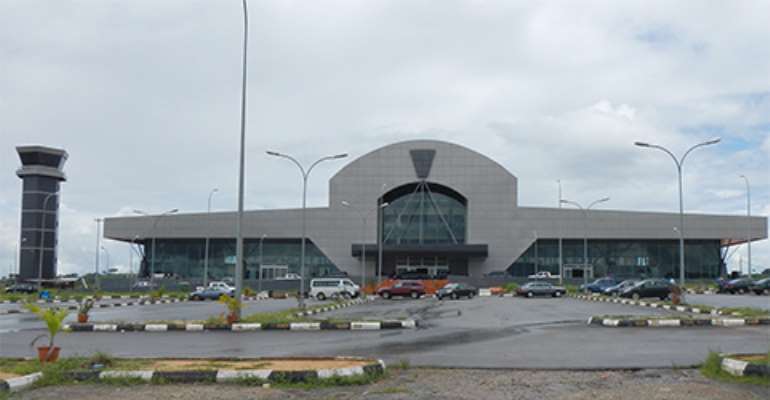Delta State State Government Concessions Asaba International Airport to Private Investors

About seven years after the commissioning of the Asaba International Airport in Delta State, the state government has concessioned the facilities to a consortium of private investors under a Public-Private Participation (PPP) model.
The government said that the consortium of investors are expected to expend at least N28 billion on various developmental investments on the airport over the 30-year concession period.
The government further said the consortium is expected to make the payment of N1 billion to its coffers within 15 days of commencement of activities, while another sum of N100 million is expected from the concessionaire annually and would be escalated every five years.
Also, the government said that Osubi Airport, Warri, would be re-opened to traffic in the next two weeks, as all conditions to make it functional, including the Covid-19 protocol, have been met by the government.
In his speech at the agreement signing ceremony for the concession of the Asaba International Airport between the state government and Asaba Airport Company Limited, the new manager of the airport, on Tuesday, Ifeanyi Okowa, the Delta State governor, said that the new arrangement would boost economic and social activities in the state.
Okowa explained that the government concessioned the airport to FIDC-Menzies Consortium as the preferred bidder to operate as the master concessionaire, while others would act as sub-concessionaires for the entire concession years.
The consortium has technical partners like Air Peace as the Anchor Airline and Maintenance, Repair and Overhaul (MRO) operator; Multifreight Cargo and Logistics for cargo and logistics centre; Arbico Construction Company to develop the business park, hotel and convention centre; Rainoil Limited and Cybernetics Limited to develop the tank farm and provide aviation fuel, while Quroum Aviation Limited would develop and manage the private jet and helicopter terminal.
The concession of Asaba Airport makes it the first state-owned aerodrome to be concessioned in the country.
Okowa said that the airport could only be made more efficient when handed over to private investors whom he said were experienced in management of airports.
He explained that at inception, the vision of the government was to make the airport a regional hub for exportation of agricultural produce for the country, but lamented that it suffered a huge setback some few years back when it was downgraded to Cat 111 by the Nigerian Civil Aviation Authority (NCAA) due to drop in standards.
With the downgrade, he explained that the airport could only accommodate small aircraft, which defeated the vision of the state government.
He, however, said that in order to make the airport functional, the state government had to reconstruct the runway, construct perimeter fences, upgrade the Instrument Landing System (ILS) and other facilities, leading to its upgrade by the regulatory agency.
According to him, the new initiative by the state government had attracted new investors, new airlines, which now jostle to operate to the airport and improved economic activities for the state.
“It is the business of the Master Concessionaire to manage the airport, develop the cargo, hotel and conference centre, airlines operating into the airport and the MRO facilities among others.
“The name of the airport shall remain Asaba International Airport and there shall be no new other Greenfield airport within the concession period. Also, 20 per cent of its staff must be from Delta State and there should be mandatory capital project to be completed with the three years of commencement,” he said.
In his remarks, Adebisi Adebutu, the chairman, Asaba Airport Company Limited, assured that the management would rebrand the airport and make it one of the best within the continent.
Adebutu explained that the long term plan of the management was to upgrade the airport into an airport city where all activities would take place.
He assured that the management would resuscitate the facility for improved job creation.
